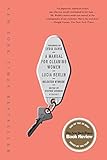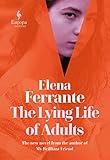I had a head start on staying home. My baby was born in late December 2019, and by March, her previously hyper-social dad and I had already mastered grocery delivery and hand sanitizer and long Brooklyn walks and holidays alone. We knew, too, that not commuting did not mean more time, or even if it did, it certainly did not mean more reading. At the beginning of 2020, we were deep into the process of discovering that time and space could rearrange themselves to accommodate previously unimaginable new futures, futures in which I was elated to wake up at 6am after going to sleep at 2, and no longer interested in buying clothes for myself but very interested in folding laundry, and that none of this meant that anyone would actually read more books. I keep a yearly log, so I knew I was falling behind, but I didn’t care. I flagrantly let myself off the hook. In the middle of a global pandemic, I was successfully sustaining new life. I nursed, I scrolled, I responded to every innocent email or text with a picture of my baby.
Books, or pieces of them, snuck in occasionally, as I guess they always do, even for those who claim we’ve failed.
In the beginning, high on oxytocin and maternity leave, there were the books I’d been meaning to read forever: Elizabeth Bowen’s The House in Paris, Henry Green’s Loving, Ernest Hemingway’s A Moveable Feast, Iris Murdoch’s A Severed Head. Reckless love affairs all over mid-century Europe, while a baby sucked my breast. I often fell asleep reading, but I felt good about my life choices. Sally Rooney crashed the syllabus at one point. I’d read Conversations with Friends while on IVF drugs the previous spring and it had made me feel young and sexy again in the middle of my painful fertility crisis. Normal People kept the fantasy alive in 2020.
When it’s hard to read or even hold a book because there’s a baby in your hands already, poetry fits the available fingers. Line by line, page by page, I absorbed the exquisite dialogues and border-crossings of my Adelphi University colleagues: Documents by Jan-Henry Gray and Passeggiate by Judith Baumel. I also finally picked up The Archivist, by a third colleague, Martha Cooley. I must’ve been saving it for the real-world release of T.S. Eliot’s long-sequestered letters to Emily Hale, which made headlines early this year, and which feature imaginatively in Cooley’s devastating novel.
The slim, three-volume memoir of the late Danish poet Tove Ditlevsen (Childhood, Youth, and Dependency in Tiina Nunnally and Michael Favela Goldman’s translation) captivated me in the darkest depths of New York’s lockdown. The self-portrait of an artist, lover, and addict (what’s the difference, really), it took me back to my last international trip, to Copenhagen and the island of Bornholm the previous summer, a carefree time Ditlevsen could’ve told me would be short-lived: “Time passed and my childhood grew thin and flat, paperlike.”
In the wake of George Floyd’s murder, it was impossible not to seek out contemporary Black writers working at various angles against racism. Jesmyn Ward’s odyssey of the rural poor in Sing, Unburied, Sing; Tayari Jones’s upwardly mobile love triangle in An American Marriage; Tyehimba Jess’s Olio of first-generation freed voices; the many lives at home and abroad of Patricia Spears Jones’s A Lucent Fire: New and Selected Poems; and the paradigm-challenging arguments of Karen Fields and Barbara Fields’s Racecraft: The Soul of Inequality in American Life, have all stayed with me. As Jones writes with earnest irony: “Who cares about Dream? / Important, subject. // Action. Where is action? If we weep too much, / we go crazy. If we don’t weep, we go crazy.”
Later in the summer, Hannah Gersen’s shape-shifting novel manuscript (appropriately still untitled), gave me a serious contact high. A utopian novel masquerading as a friendship novel masquerading as a thriller, it also made me want to reorganize my life around mushrooms.
Lucia Berlin’s A Manual for Cleaning Women, on my bedside table forever, finally made it between the sheets in August. Like Ditlevsen, Berlin brings a startling post-grief, post-addiction clarity to her slender stories of rich and poor lives in Chile, Mexico, and the Western United States: “The day my father killed off my mother was the day he stopped knowing me. After that he ordered me around like a secretary or a servant. One day I finally asked him where I was. I had run off.”
By September, it was back to the aggressive unsentimentality of Elena Ferrante. I devoured The Lying Life of Adults, and returned to portions of the Neapolitan Quartet, which, thanks to The Ferrante Letters, my writing-group-turned-book with Sarah Chihaya, Merve Emre, and Jill Richards, has become something of an annual tradition, like renting a lake house with old friends or unearthing the heavy winter coat.
The fall was a hodgepodge of story sampling, from Laura van den Berg’s I Hold a Wolf by the Ears, her most haunting work to date; Lynne Sharon Schwartz’s wry, tender, practically omniscient Truthtelling; Michael Croley’s Any Other Place, a timeless collection of small-town blues; and John L’Heureux’s The Heart is a Full-Wild Beast, a radically humane book I first started reading in the middle of a pretty good holiday party a week before my daughter was born.
Throughout the year, I should confess, the books most read were for babies, the trippier the better. Goodnight Moon and Runaway Bunny are not the repetitive dust-magnets I remember, but wild holodecks of metamorphosis and intertextuality. This Is Not a Book is a sublime sequence of visual jokes, with silent text discovered by the reader. Peck Peck Peck continues the time-honored tradition of building a story around a sequence of holes. And The House in the Night takes joyful flight just before bed, but without any sense of false comfort. However desultory my reading was this year, my daughter met hers with urgency, kissing, biting, scratching, hooting, and touching faces on every page.
Once a year in Sweden, a veteran writer wins the Nobel, and every year I think to myself I finally ought to read this person. This year, I actually did. Louise Glück turned out to be the perfect poet for this relentlessly grieving year, a year (well, more) of wreckage we have to haul ourselves out from below. Using the language of flowers, The Wild Iris articulates exactly this kind of pain. It also dares, against all reasonable odds, to hope:
You who do not remember
passage from the other world
I tell you I could speak again: whatever
returns from oblivion returns
to find a voice:
from the center of my life came
a great fountain, deep blue
shadows on azure seawater.
More from A Year in Reading 2020
Don’t miss: A Year in Reading 2019, 2018, 2017, 2016, 2015, 2014, 2013, 2012, 2011, 2010, 2009, 2008, 2007, 2006, 2005























